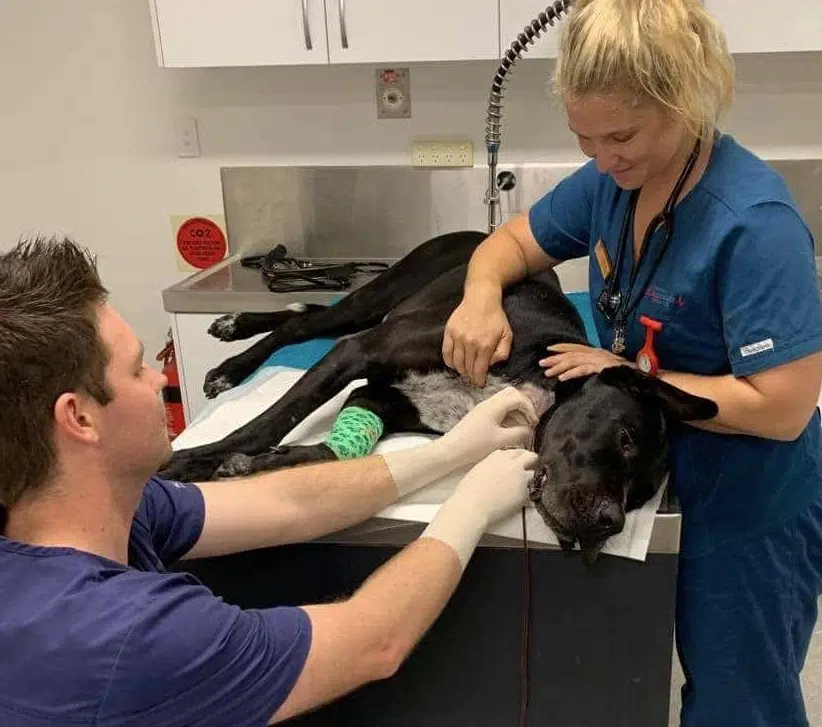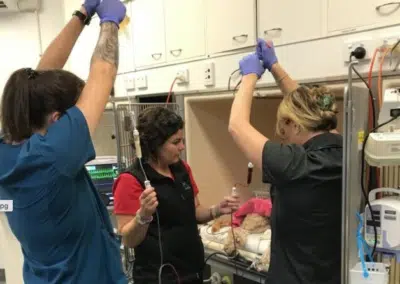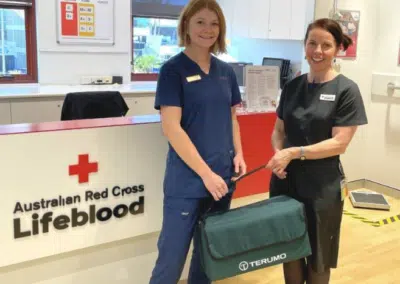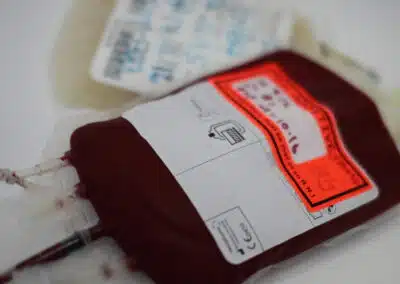Providing vital, life-saving blood and plasma to our patients when they need it most.
Performing a blood transfusion or administering plasma could potentially be a rare occurrence for many vets, but here at our network of Animal Emergency Australia hospitals, our critical patients often require transfusions on a regular basis. This is exactly why we established the Animal Emergency Australia Blood Bank, to ensure a supply of life-saving blood products is available to critical patients at all times.
What is the AEA Blood Bank?
Our hospitals run our own dedicated canine and feline blood bank program to collect and store life-saving blood products, so that these can be used at any time when required. Due to the critical nature of veterinary emergency, many patients require blood transfusions or plasma to stabilise their conditions, particularly after cases of trauma.
As donated blood can only be stored for a month, this means our hospitals require a constant supply of canine and feline blood to ensure transfusions can be supplied to critical patients.
More Than Just Blood
Our teams face emergencies every single shift and know that the type of blood product given should always be based on the individual needs of the patient. To ensure a steady supply to suit the individuals needs of a patient, transfusions may include any of the following blood products:
- Whole blood
- Packed Red Blood Cells (pRBCs)
- Fresh Frozen Plasma (FFP)
- Frozen plasma (FP)
- Other transfusions (i.e., albumin, lyophilized platelets)

Each time we are faced with the possible need for a transfusion, we take it on a case-by-case basis with thorough clinical assessment of the patient and basic supportive bloodwork.
Patients in Need
As we regularly see critical patients in our hospitals, our blood bank is essential to support patients with any of the following:
- An acute decrease of PCV below 25% (dogs) and 20% (cats)
- If going to emergency surgery and PCV is below 20% in a dog and 18% in a cat
- Hypotension post-blood loss
- Marked blood loss during an emergency surgery, decreasing cardiac output.
- Decreased SPO2 in anaemic patients
Many cases that present to AEA hospitals require blood or plasma transfusions. The AEA blood bank is crucial in ensuring a steady supply of blood products to these patients in need.
Want to know more about our canine blood donation program or need advice on blood collection? Access our free Blood Transfusion Protocol and AEA Guide to Blood Collection! And to become part of the AEA team and save lives as part of our hospitals and clinics, explore our current opportunities at AEA.




